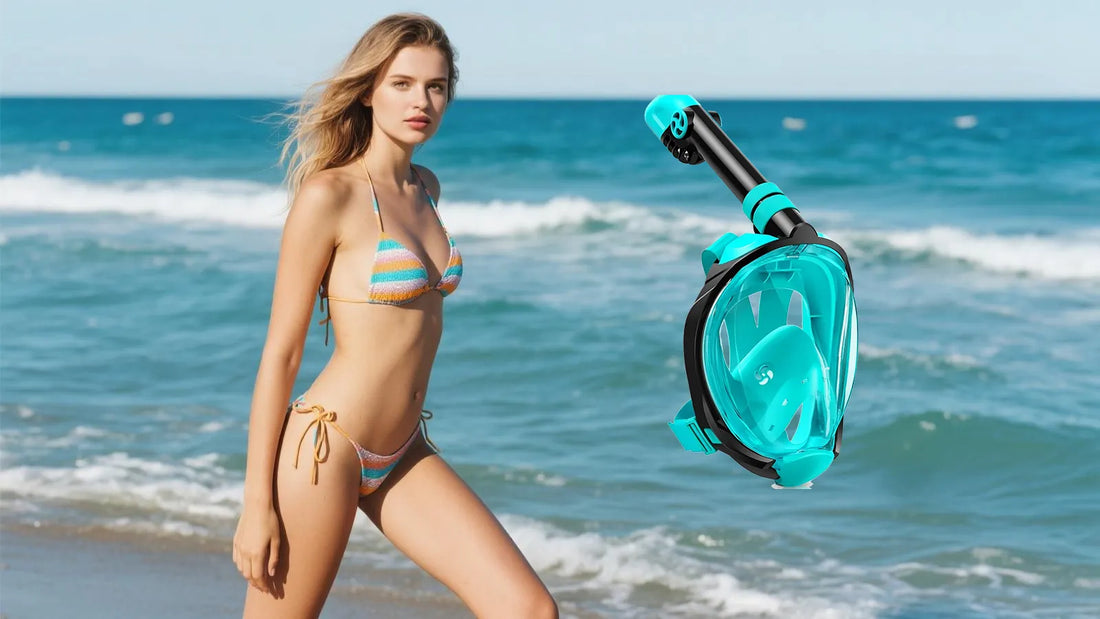Scuba diving is an exhilarating experience that allows you to explore the underwater world like never before. But for those who rely on contact lenses for vision correction, a common question arises: Can you wear contact lenses while scuba diving? The answer is yes, but with some important considerations. This article will guide you through the ins and outs of wearing contact lenses underwater, ensuring your diving adventures are both safe and enjoyable.
The Basics of Wearing Contact Lenses Underwater
Wearing contact lenses while scuba diving is generally safe, provided you take the necessary precautions. The primary concern is ensuring that your lenses stay in place and that your eyes remain comfortable throughout the dive. Most divers who wear contact lenses find that they can see clearly underwater, which enhances their overall experience. However, it's essential to understand the potential risks and how to mitigate them.
Benefits of Wearing Contact Lenses While Diving
One of the main advantages of wearing contact lenses while scuba diving is the improved vision. Clear sight is crucial for navigating underwater environments, spotting marine life, and ensuring your safety. For divers who require vision correction, contact lenses offer a convenient solution that doesn't interfere with the fit of your diving mask. Additionally, contact lenses provide a wider field of view compared to prescription masks, allowing for a more immersive experience.
Potential Risks and How to Mitigate Them
While wearing contact lenses underwater is generally safe, there are some risks to be aware of. One concern is the possibility of losing a lens if water enters your mask. To minimize this risk, ensure that your mask fits snugly and is properly sealed. Another potential issue is the risk of eye irritation or infection due to exposure to saltwater or contaminants. To reduce this risk, consider using daily disposable lenses and avoid touching your eyes with wet hands. It's also a good idea to rinse your eyes with fresh water after diving to remove any residual salt or debris.
Expert Recommendations for Divers
Experts recommend that divers who wear contact lenses choose soft lenses over rigid gas permeable (RGP) lenses. Soft lenses are more comfortable and less likely to dislodge during a dive. Additionally, it's advisable to carry a spare pair of lenses and a lens case in case you need to remove them during or after the dive. If you experience any discomfort or vision problems while diving, it's important to surface and address the issue immediately.
Alternatives to Contact Lenses for Divers
For those who prefer not to wear contact lenses while scuba diving, there are alternative options available. Prescription masks are a popular choice, as they provide clear vision without the need for lenses. Another option is to undergo refractive eye surgery, such as LASIK, which can eliminate the need for vision correction altogether. However, it's important to consult with an eye care professional before making any decisions about surgery.
Tips for a Safe and Enjoyable Diving Experience
To ensure a safe and enjoyable diving experience while wearing contact lenses, follow these tips: Always check the fit and seal of your mask before diving, use daily disposable lenses to minimize the risk of infection, and carry a spare pair of lenses and a lens case. Additionally, avoid rubbing your eyes underwater and rinse them with fresh water after diving. By taking these precautions, you can enjoy the underwater world with clear vision and peace of mind.
Wearing contact lenses while scuba diving is a viable option for those who need vision correction. With the right precautions and expert advice, you can dive confidently and enjoy the beauty of the underwater world. So, the next time you gear up for a dive, rest assured that your contact lenses won't hold you back from exploring the depths.

